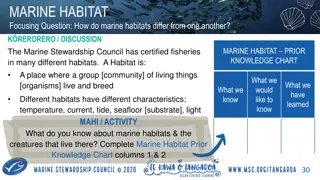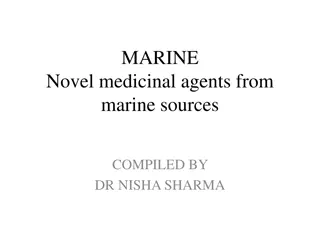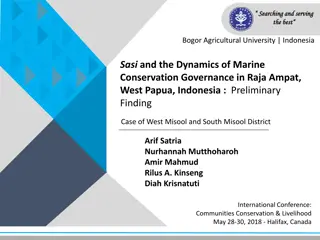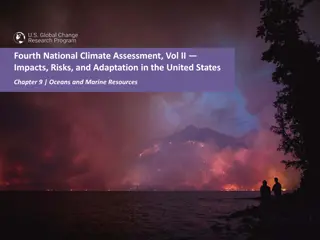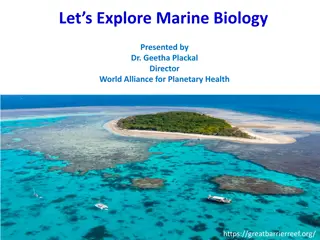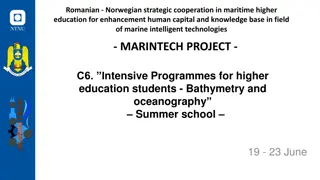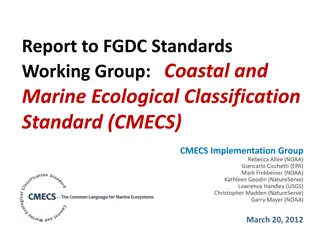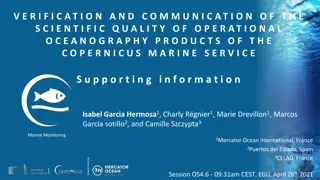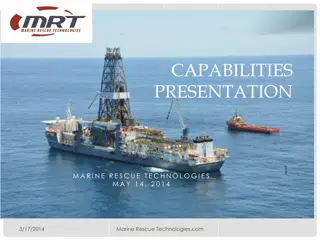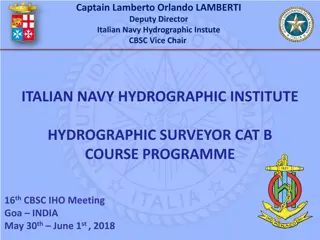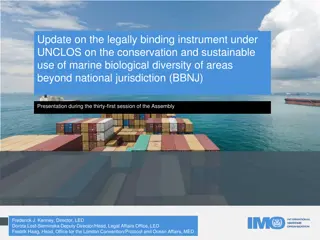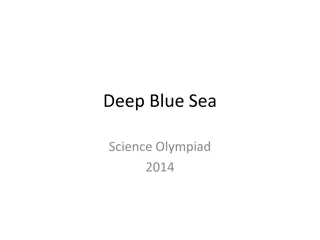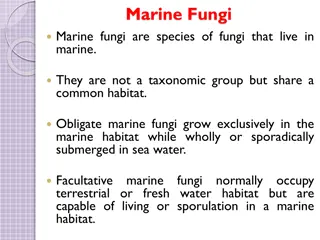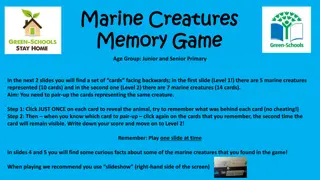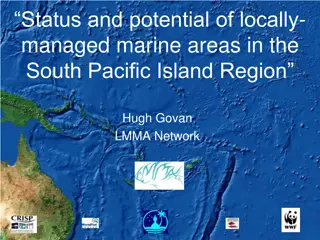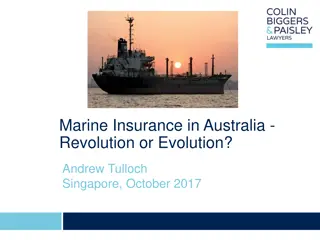Exploring Marine Science and Oceanography Course Structure
This marine science and oceanography course dives into the traditional structure of understanding oceans, from Earth-building processes to human interactions. It also introduces a unique approach focusing on the oil/plastics cycle, engaging students in active learning and discussions on geoethics. Through a series of class activities, discussions, and assignments, students explore topics like marine chemistry, sedimentation, marine life, and the impact of plastics on marine ecosystems.
Download Presentation

Please find below an Image/Link to download the presentation.
The content on the website is provided AS IS for your information and personal use only. It may not be sold, licensed, or shared on other websites without obtaining consent from the author. Download presentation by click this link. If you encounter any issues during the download, it is possible that the publisher has removed the file from their server.
E N D
Presentation Transcript
Introduction to Marine Science/Oceanography Course Structure Lauren Sahl, Maine Maritime Academy
The Traditional Structure 1. 2. 3. 4. 5. 6. History of our growth in knowledge about the oceans. Build the Earth. Make the oceans through plate tectonic processes. Modify the sea floor through sedimentation. Fill the oceans with water. Let the atmosphere and the ocean water interact and the water circulates. Other types of circulation- waves and tides. Move closer to shore and look at beach and estuarine processes. Put organisms in the ocean. 10. Examine the bottom of the food chain and work your way up. 11. Move off shore and look at deep ocean habitats. 12. Human interaction with the ocean- resources, pollution, the role of the ocean in climate change. 7. 8. 9.
A Different Approach Discovering the Oil/Plastics Cycle Active learning starts on day one. Students discover their stake in the course. Student created course structure anchors the course. Mind map product sets the stage for geoethics discussions throughout the course.
Discovering the Oil/Plastics Cycle First class meeting Stomach contents video
The Homework Assignment Plastic in the Ocean Homework As a class we watched a video showing the gut contents of a dead baby albatross on Midway Island. If you want to watch it again it is at this link: http://www.youtube.com/watch?v=9DA4vb9bbQQ Plastic it not a naturally occurring substance, nor is it naturally found in bird guts or the ocean. Below, write down as many steps as you can that led to a baby albatross ingesting plastic. Think deeply, beyond plastic getting washed into the sea and then fed to the chick. There are many types of plastics, but for our purposes we will examine them as a group. Bring your chain of events to our next class meeting.
Discovering the Oil/Plastics Cycle Second class meeting Props- giant post-its, colorful markers. Small group work/all class work/small group work/all class work.
Water and marine chemistry, layering in the ocean, upwelling Upwelling leads to high primary productivity and organic rich sediments Marine sediments Marine plankton, plankton ecology and primary production Organic rich sediments lead to oil Effect of microplastics on plankton Albatross and plastic Folding of sedimentary rocks leads to oil pools Bioaccumulation of plastic? Effects of plastics on other organisms? Plate tectonics and the interior of the Earth Sea floor morphology Life in the ocean Food webs and trophic pyramid Circulation aggregates plastic Circulation of the ocean and the atmosphere
Discovering the Oil/Plastics Cycle Second class meeting Have students identify how they fit into the cycle. Add as different colored post-its.
Discovering the Oil/Plastics Cycle Third class meeting Hand out mind map developed in previous class, and a syllabus with topics in same order as mind map.
Discovering the Oil/Plastics Cycle During the semester Develop exercises related to the mind map that Improve scientific thinking and computation skills Probe the geoethics of the use and abuse of the ocean
Possible Geoethics Exercises 1. How long does it take to make oil? How long does it take to use it up? 2. Still in development ..




